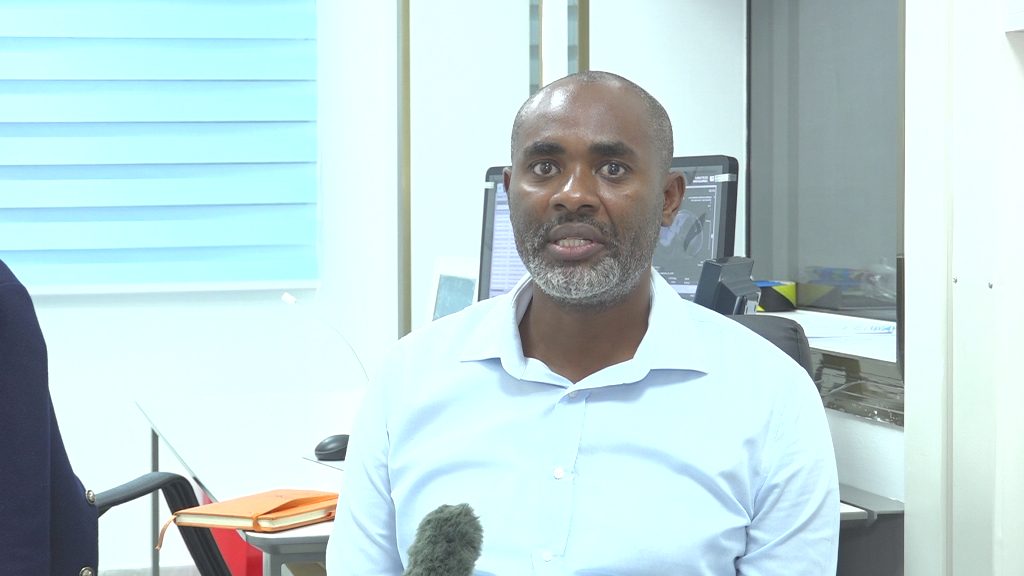Technological advancements in medical imaging are significantly transforming healthcare services in the country, experts have said.
They say that the latest Magnetic Resonance Imaging (MRI) machines are transforming healthcare by using AI to significantly speed up scans, improve patient comfort, and increase diagnostic accuracy through more detailed images.
Led by Dr Daniel Somba, the Managing Director and Chief Radiologist of MIC Imaging Centr in Thika town, the experts assert that Artificial Intelligence and advanced imaging techniques provide clearer and more detailed images, increasing confidence in diagnosis and improving treatment planning.
“MRI scanners have been transformative for healthcare, helping medics diagnose a variety of conditions non-invasively. This new low-field technology makes MRI scans easier and cheaper than ever before, enabling more patients to access care and protecting people’s health while easing the burden on healthcare systems,” Dr Somba said.
He spoke while unveiling the latest 72-Channel MRI scanner at the facility, a one set to bring relief to the central Kenya region, which grapples with limited access to services due to inadequate equipment.
The machine produces stronger magnetic fields, providing higher-resolution images that enable the diagnosis of smaller joints and more subtle abnormalities, particularly in complex neurological cases.
Highly sensitive and radiation-free, the machine is safe for patients of all ages, including children. Scans take only a few minutes and can be repeated as often as necessary to track disease progression.
Most locals have been thronging to Nairobi and other far-flung facilities to seek spe services. Access to MRIs is limited and can. Kenya has just around 50 MRI scanners in total—roughly one per million people—with nearly all of them concentrated in Nairobi and a few other major towns.
Dr Somba noted with concern that rural communities, where around 70 per cent of Kenyans live, remain underserved, adding that the shortage of specialists further constrains imaging services. The country has just one radiologist per million people, far below the recommended rate of 10 per 100,000.
The Radiologist noted that the latest technology is now aiding in the CTI, facilitating evidence-based treatment and thereby saving more lives and resources.
Advancements in medical imaging are helping doctors rely on evidence-based procedures to treat patients. It has strongly impacted the ability to detect diseases on time and enabled doctors to plan treatment on time,” he said.
He also divulged that with the latest tech, the number of patients being served has incre thereby reducing the burden on patients who have had to wait for days to access the services and receive results.
The new scanner installed at MIC Imaging Centre, for instance, can serve about 80 patients per day, unlike the older conventional machines that used to serve about 20 patients per day.
He revealed that the latest equipment can perform all types of scans, including brain, spine, liver, prostate, breast, abdomen, and pelvic scans.
Dr Joseph Mbai, the General Manager in charge of health at Equity Group, said the lack of MRI availability has been a challenge, especially for Kenyans living in rural areas.
READ ALSO:
KNEC rolls smart locks to secure exam papers, curtail leakages
He said that private facilities have been playing an integral role in enhancing the provision of quality healthcare services to Kenyans with modern, state-of-the-art equipment that is steadily transforming the country’s healthcare.
This equipment is highly costly, which is why it also includes the latest advancements. For instance, installation of the MRI scanner at MIC Imaging Centre cost not less than sh 200 million,” he averred.
While noting that the cost of accessing advanced medical technology remains a challenge for most families, Mbai appealed to the Government to ensure that the Social Health Authority (SHA) covers the cost of chronic illnesses, thus rem burden of hefty bills.
Patients pay between Sh18,000 and Sh32,000 for scans, which is well beyond the means of most families and especially those at the bottom of the pyramid.
Fredrick Muindi said that the availability of modern equipment in the area will save many patients time and the cost of accessing the crucial services, as well as assist in early diagnosis and treatment.
He noted that most patients have been grappling with long queues and longer waiting hours in the few facilities that offer the services in Nairobi.
He pleaded with the Government to include MRI services in the national health insurance scheme to make the services more affordable and accessible to Kenyans.
By Kamau Njoroge
You can also follow our social media pages on Twitter: Education News KE and Facebook: Education News Newspaper for timely updates.
>>> Click here to stay up-to-date with trending regional stories
>>> Click here to read more informed opinions on the country’s education landscape
>>> Click here to stay ahead with the latest national news.






